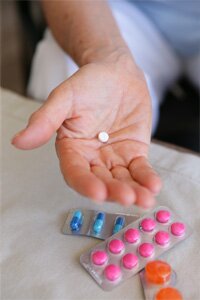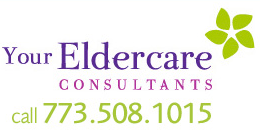 One of the most important roles of a caregiver may be monitoring and managing the health of a loved one. Medications can be a large part of this process. Taking medications is not as easy as swallowing a pill. It involves getting all the information necessary to use medications properly. When used correctly, medications can help treat many chronic conditions, provide relief of symptoms, fight infection and hopefully improve quality of life. This section will provide information and resources to help take an active role in medication management.
One of the most important roles of a caregiver may be monitoring and managing the health of a loved one. Medications can be a large part of this process. Taking medications is not as easy as swallowing a pill. It involves getting all the information necessary to use medications properly. When used correctly, medications can help treat many chronic conditions, provide relief of symptoms, fight infection and hopefully improve quality of life. This section will provide information and resources to help take an active role in medication management.
Did You Know…
- Older adults use more medications than any other group in the United States
- In a recent study, 2 out of 5 older adults reported taking 5 or more prescription medications
- Older adults make up 13% of the population but account for 34% of all prescription medicine use and 30% of all OTC (over-the-counter) use
developed by NCPIE, National Council on Patient Information and Education
Last updated November 16, 2009
Steps for Successful Medication Management
- Adhere to the Plan of Treatment
- Medications need to be taken exactly as directed. Never stop a medication without consulting the health care professional.
- Know the Medications
- Know the name, why it is being taken, how and when to take it and for how long, possible side effects, what food, drinks and other medications to avoid when taking this drug, refills, how often and what to do if a dose is missed. ascp.com/articles/tips-using-your-medicines-wisely Do not use old or expired medications and read all of the medication labels and written instructions www.mustforseniors.org
- Keep a Current List of All Medications
- Include prescription and over-the-counter (OTC), vitamins, herbals and supplements, eye drops, creams and ointments taken regularly and on an “as needed” basis. A medication worksheet is available as a PDF. Keep a copy of the list with you and your care recipient in your purse/wallet, give a copy to appropriate family/friend, keep a list near your phone including other emergency information, and share the list with All of the health care professionals (each doctor, dentist, podiatrist, etc.)
- Store Medications Safely
- Store in a cool, dry place (not in the bathroom) away from heat or direct sun light (away from stove and window sill). Keep all medicines in one location except for medicines that need refrigeration. Store out of the reach of children. Expired or discontinued medications should be discarded properly.
- Never Share Medications
- Do not take anyone else’s medications and do not share the medication for which you are responsible.
- Check Before Adding an OTC Drug
- Always check with the health care professional before adding an over-the-counter (OTC) medication. Many OTC drugs can interact with medications one may already take.
- Communicate with the Health Care Professional
- Bring a list of questions to medical appointment regarding medications already taking, i.e. Are any medical tests needed while on this medicine (liver or kidney function)? Is the medication still needed? Are there any non-drug treatments? Bring up any problems with the medication; side effects, difficulty following medication regime, difficulty swallowing pill, etc. If there is a new medication prescribed, ask the name of the drug, why it has been prescribed, any special instructions on how to take the medication, when the medication will begin to work, how one will know if it is working, is there any written information, and what is the need for follow up.
- Develop a system to simplify compliance with taking medication. Talk to the pharmacist about medical set up of commercially available medication organizers.
The following sections may assist you:

